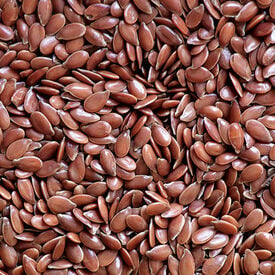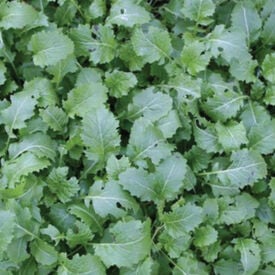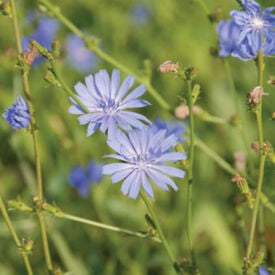The Common Flax is a cool season annual broadleaf with small taproots and very small, narrow leaves that are less than an inch long. This variety's stems are branched near the base of the plant, with plants reaching 30 to 36 inches in height. The multiple stems or branches of a flax plant are slender and flexible, bearing attractive blue flowers. Flax has the same performance benefits of other grasses and grains, of quick germination and a highly fibrous root mass. Flax will take up excess N and other minerals, will winter kill and provide moderate to high amounts of organic matter back to the soil. Flax provides excellent mulch for protection of erosion and improving water permeation during the winter and spring. Flax (Linum usitatissimum): Cool season, broadleaf, Annual, Upright plant habit Uses: Bees & Beneficial Insects, Chicken Forage, Erosion Control, Green Manure, Nitrogen Savenger, No Till, Organic Matter (Biomass)
Dwarf Essex Rape (Brassica napus) is a fast-growing, cold-hardy forage crop commonly used for livestock grazing, wildlife food plots, and soil improvement. This leafy brassica produces high-protein, highly digestible forage that remains palatable even in colder temperatures, making it an excellent choice for fall and winter grazing. It is drought-resistant and can thrive in various soil types, providing a nutritious food source for deer, cattle, and other grazing animals. Additionally, its deep root system helps improve soil structure and reduce erosion. Due to its rapid regrowth, Dwarf Essex Rape is a valuable option for sustainable pasture management.
Chicory has a long taproot that penetrates subsoils which makes it drought tolerant and allows it to make minerals more available to livestock. Rich in potassium, sulfur, calcium, zinc, sodium, manganese and iron. When managed properly, Chicory produces leafy growth which is higher in nutritive and mineral content than alfalfa and other cool season grasses. Used mainly in mixes with other pasture or cover crop seeds. Chicory (Cichorium intybus L.) - Warm season, broadleaf - Perennial - Upright and spreading growth habit - Protein levels: 10-32% - Forms arbuscular mycorrhizal associations Uses: - Bees & Beneficial Insects - Chicken Forage - Deer Attractant - Forage



